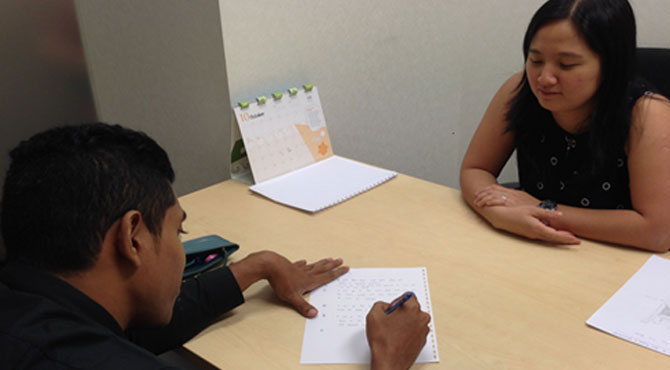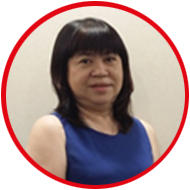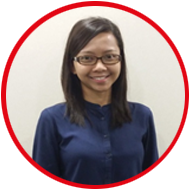In Singapore, a candidate for the Marine Engineer Officer (MEO) Certificates of Competency (COC) has to pass the written examination, as well as oral and simulator assessments. The written examination tests their theoretical knowledge and knowledge of general engineering principles. The simulation assessments tests their competence in maintaining a safe engineering watch, their knowledge in identifying malfunctions of various systems that one can anticipate in a ship, and their ability to take appropriate actions to ensure safety of ship. However, these assessments have some limitations and cannot fully test a candidate’s knowledge in various skill sets required to serve on a ship as a marine engineer.
The oral assessment is used as a quality check of a candidate’s competence and his ability to function effectively as a marine engineer on a ship. The oral exam is similar to a job interview.
During the oral assessment, candidates are tested on their knowledge and their ability to apply their theoretical knowledge and understanding of maritime regulations in their day-to-day work. They are expected to know about failures in shipboard systems, how to recognise them and how to take appropriate actions (e.g. failure of cooling water pump). They also need to demonstrate a good understanding of safe working practices in the engine room and measures to prevent pollution to the environment. Most of these skills can be picked up by candidates at sea by closely observing how various tasks are supervised by chief engineers and senior engineers, and by applying what they learnt at the training institute.

We understand that sitting for any examination is stressful for most candidates. Taking an oral examination and sitting face to face with the examiner is more challenging. Here are some practical tips that you might find useful. Like all examinations, the oral examination requires proper preparation. It is important to have a good understanding of the shipboard machinery, systems and safety equipment. This can be acquired through actual working experience while serving onboard the ship at sea. During the sea service, candidates should personally do all assignments and read the maker’s instructions. They should also be conversant in the applications of international conventions onboard ships – for example how to pump out engine room bilges. During preparation time, candidates should also use facilities available at the maritime academy to understand differences between different machinery and types of ships. Lastly, candidates should also have a good night’s sleep and breakfast before the examination. Candidates who are confident, well-prepared with some analytical and situational awareness skills, and are able to articulate these skills may find that taking the oral assessment is not that scary after all!
The proof of the pudding is in eating it. For COC candidates, the ultimate test is if the company or the chief engineer will have confidence in entrusting ship’s machinery - costing millions of dollars - to the COC holder.
Key Changes to Marine Engineer Training from 2015
The Diploma in Marine Engineering (DMR) course conducted by the Singapore Maritime Academy (SMA) is the key training route for Singaporeans aspiring to take up a seafaring career as a marine engineer officer. Under the existing system, a DMR graduate who wishes to take up seafaring and acquire a certificate of competency (COC) as a marine engineer officer is required to complete the Diploma course at SMA and sit for Diploma examinations. Subsequently, he or she has to join a ship as a trainee engineer or an engine cadet and complete six months of service as a trainee engineer or engine cadet before he/she is eligible to sit for the COC examination.
MPA, in consultation with the SMA, has made changes to the curriculum and training period to make the course more attractive for Singaporeans who wish to embark on a seafaring career. Under the revised programme, students are attached to SMA for five semesters, and an additional one semester is earmarked for an industrial attachment programme. Each semester lasts about six months.
The reduction in contact time in SMA has not reduced the academic rigour of the course. In fact, the revised course is more focused on marine engineering, fully compliant with IMO’s model course and covers all the competences required under the STCW Convention. SMA has incorporated several modern teaching technologies (eg. E-learning, simulators, workshop etc) and removed obsolete topics to provide more focused and “job ready” students to the industry.
Students who are keen to take up a seafaring career would do their industrial attachment on board ships and clock in the required six months of sea service during the sixth semester. Upon obtaining the sea service they would be eligible to sit for MPA’s Class 5 Marine Engineer Officer COC exams. They will thus be qualified with a Diploma from a Polytechnic as well as an internationally-recognised COC. This would enable future DMR students to obtain their COC a good six to eight months earlier than current batches
The revised DMR course would commence from April 2015 and the first batch of revised DMR graduates are expected to graduate in 2018. We hope this new programme will encourage more Singaporeans to take up exciting jobs in the maritime sector.
Do You Know the MPA Staff?
The Seafarer’s Management Department (SMD) deal with crew matters for Singapore-registered ships. It ensures compliance of manning requirements, safeguards the welfare of seafarers on board ships and provides arbitration for disputes between masters/owners and seamen. The SMD of the Shipping Division is also key to the ratification of the Maritime Labour Convention 2006 (MLC) which came into force on 20 August 2013. We would like to introduce the following SMD staff:

Mdm Irene Goh is the Manager of the SMD of the MPA. She is a very experienced senior officer in the department, having joined the former Marine Department as an Executive Officer in 1980. Irene plays an instrumental role in handling the key planning of duties and managing the workload of the SMD on crew matters, and manning compliance of Singapore-registered ships. Her focus is on ensuring that the SMD provides quality and expedient service to the shipping community. In her many years of working in MPA, she has also helped to resolve a number of issues regarding seafarers’ welfare and crew complaints. With more than 56,000 seafarers serving on board Singapore-registered ships, there are heavy demands on the SMD to provide effective and efficient services to the shipping community. Irene regards continuous improvement as a priority to ensure that SMD is able to deliver the required service level to the ship registry’s stakeholders – namely the employers and employees of seafarers. She has undertaken several IT enhancement projects which have successfully transformed a majority of SMD counter transactions and services to be performed electronically. This ensured the SMD has continued maintaining its excellence in service amidst the fast growing shipping community.
Irene is highly regarded amongst the shipping community who regards her as a vital source of knowledge on crew manning matters. Her attitude to always strive for excellence in servicing customers is evident by her willingness and swift response to urgent calls and requests on numerous occasions after office hours.

Mdm Tay Guek Eng is a Senior Management Officer with the SMD. Her experience in her role cumulates from the former Marine Department.
Mdm Tay is a key member of the SMD’s IT enhancement projects. She had taken on the role enthusiastically and has worked behind the scenes to oversee the projects and ensure the successful implementation of these enhancements. She continues to monitor the SMD’s IT enhancement projects to ensure that the systems run smoothly and efficiently.
With her vast experience in the SMD since her joining in 1981, she is highly regarded by the customers in the SRS whom she has served over many years. She is always willing to guide and teach new staff to ensure that the SMD continues delivering quality service to the shipping community.
Here is what she has to say about SMD: “I have worked in the Seafarers Management Department since the completion of my studies. Over the years, I have seen the changes from the manual checking of crew documentation over the counter to online submission and verification of ships’ documents without the need of the shipping companies calling at our counter. The constant improvements are the result of our officers and staffs’ efforts to continually streamline and enhance our work processes to meet the increasing demands of the industry. The journey has been challenging but extremely enriching for all of us in the SMD.”

Ms Juraida joined SMD in 2012 when she graduated from the Singapore Polytechnic with Diploma in Maritime Transportation. She has taken on the role of an Assistant Management Officer in the department.
Ms Juraida is a valuable addition to the SMD team and has contributed to the department’s service excellence. She has caught on quickly to the tasks required of her, having leveraged on the related industry knowledge acquired while completing her Diploma.
Here is what she has to say about SMD: “Working in the SMD is my first job right out of school and it is where I have gained valuable experiences in multiple job scope and tasks. Handling crew members’ welfare/complaints, issuing vessels & crew documentations promptly and ensuring that our Singapore vessels are manned in accordance to their safe manning certificates are some of the things that I handled on a day-to-day basis. Working alongside my SMD colleagues have also helped me to develop into a better team player in terms of helping one other fulfil our work duties. On top of that, I have the opportunity to interact with customers and the public which has definitely given me valuable exposure in terms of developing good and effective communication skills. Sometimes, a simple ’Thank you’ from customers puts a smile on my face, knowing that the service I have provided or my reply to an inquiry is appreciated. These simple pleasures at work keep me going and never fail to give me a sense of job satisfaction.”
